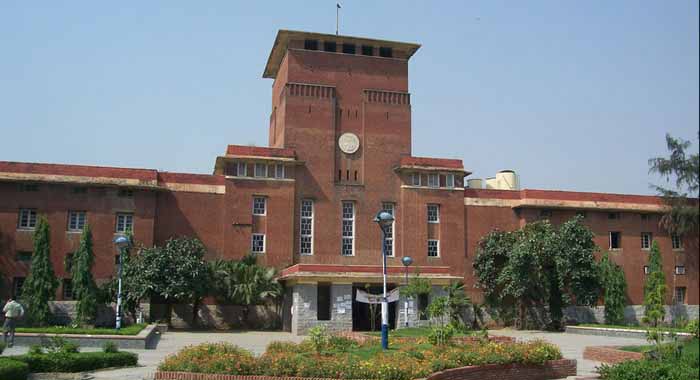Adding fuel to the start-up versus Multi-national Corporation (MNC) debate, we discuss the pros and cons that both the entities have on offer for college interns.
“IIM Lucknow has a median salary of X INR!”
“Great, but IIM Calcutta recorded (X+Y) INR last year.”
“That’s nothing, FMS (Faculty of Management Studies) Delhi went all the way to (X+Y+Z) INR this placement season.”
More often than not, most of us have had similar conversations, which perfectly encapsulate the current rat-race involving institutions, companies and jobs in the country.
With the increasing number of access points of good quality higher education in the country, coupled with innovative methods of teaching going far beyond the pages of the academic curriculum, the past two decades have witnessed an enormous rise in competition among graduates and post graduates for jobs, both in the private and the public sector.
This cut-throat competition necessitates the need for job applicants to stand out from the crowd if they wish to get a decent working position in a – preferably creamy layer – company, which means they need to stack up their curriculum vitae, or resume, the most prominent catalyst instrumental in landing them their dream job in their dream company, the importance for which was aptly described by writer Mokokoma Mokhonoana as, “Give a typical employee a million and he is most likely to use the money to print his CV on fancier paper”.
An ideal Curriculum Vitae (CV) of a fresh graduate or post-graduate contains, apart from academic and extra-curricular achievements, a list of organisations or companies where he/she spent time attempting to learn the particular trade, or in other words, worked as an intern. This list of internships gives the prospective employer examining the CV a fair idea of the applicant’s capability and area of expertise, and also a stamp of validation. “Sometimes your marks might not be able to land you a seat in a prestigious university abroad, or a prestigious company, but the right amount of internships at the right places surely can,” said a University of Delhi, Professor, on the condition of anonymity.
One’s CV undoubtedly holds a huge stake and influence in one’s future, and thus, an undergraduate student needs to take calculated decisions while choosing one’s preferred places of internship. With the country riding on a remarkable rise of economic and industrial growth, numerous successful start-ups have popped up, while already existing corporate firms have registered gains. A huge dilemma which students, mostly freshers, face, is making the choice between interning at a growing start-up or interning at an established multinational corporate. Both entities have certain distinct characteristics which might be a stimulant for some, and a deterrent for others.
Writing for Business World, Pulkit Jain describes start-ups as comprising of “casual wear, no-formalities-involved-group-discussions , no fixed working hours, fresh and flexible” while for MNCs he writes “formal wear, sophisticated meetings, nine to five on the dot working hours, prim and proper,” thus driving home the significant gulf between the work atmosphere and living spaces of both entities.
To the inquisitive and innovative intern with an entrepreneurial bent of mind, the flexible and out-of-the-box attitude of the start-up would be more appealing – though opining that MNCs do not receive such types of interns at all, would be a wrong assumption to make. Working at a start-up also allows for more widespread exposure to the corporate space and atmosphere for a new entrant, due to the relative absence of an in-built hierarchy. The intern will get to juggle a wider variety of roles, sometimes even highly critical ones, as opposed to the MNCs which mostly have a distinct horizontal separation of numerous departments and a distinct vertical hierarchy, and thus will offer a distinct and smaller role.
But a valuable point to be noted is that working in a smaller role will allow for far more specialisation in that particular area of expertise and shall allow the entrant to perform well in similar roles in the future. A significant number of people would prefer to learn specific skills in depth, with a security net, one at a time, instead of trying to juggle and gain experience in multiple areas of expertise at once, though conversely the latter would have a considerable amount of takers too.
One area in which the MNC has sole bragging rights over the start-up is brand name and recognition – not taking into consideration extremely successful unicorn start-ups like Flipkart, Swiggy, Byju’s etc. While the start-up might provide an intern with an unorthodox set of ideas and new working styles, something which the MNC will not, it cannot be denied that work or internship experience at a well-established conglomerate, say Goldman Sachs, or Deloitte, weighs far heavier than one at a start-up, on a CV, and might turn out to be a clinical deal clincher when the candidate applies for a full-time job in the future. In fact, interning at such a place also increases the chance of the candidate being offered a job at the same company after his/her graduation.
A start-up allows more freedom in terms of expression of ideas, as opposed to the largely orthodox and time-tested work methods applied in the conglomerate structure. Thus, the risk factor in MNCs is low while its significantly high in start-ups. Outcomes are extreme in the start-up world, and a large proportion of them fail in the initial stages itself. Out of the small proportion which do manage to stay afloat, an ever smaller proportion is ultimately able to rise to sub-unicorn and unicorn levels, albeit in a short time. This can be beneficial for interns and new entrants who were a part of the start-up in the initial stages, who might get top designations in a very short while. On the other hand, in MNCs, the rise to the top of the company takes several years.
Every college student has different ambitions and attitudes, some are ready to take risks, some want a secure future, some wish to build their own company, some wish to work in their dream company. Interning at a conglomerate and at a start-up nurture these different paths for them. Japneet Singh, a Computer Science undergraduate at IIT Delhi, opines, “It’s not right or wrong to choose a particular option between the two, both offer valuable learning experiences and I think one should make the choice based on one’s needs and ambitions”.
Featured Image Credits: Analytics India Magazine
Araba Kongbam
[email protected]











